
-
Find the right food for your petTake this quiz to see which food may be the best for your furry friend.Find the right food for your petTake this quiz to see which food may be the best for your furry friend.Featured products
 Hypoallergenic Small & Mini Adult Dog Food
Hypoallergenic Small & Mini Adult Dog FoodHILL'S SCIENCE PLAN Hypoallergenic Small&Mini Adult dog food with Salmon is complete pet food for adult small dogs 1–6 years old. It's formulated for dogs with delicate skin and stomach, with limited high quality novel protein sources & no grain.
Shop Now Perfect Weight Small & Mini Adult Dog Food
Perfect Weight Small & Mini Adult Dog FoodHill's Science Plan Adult Small & Mini Dog Food with Turkey is a complete premium pet food for adult small dogs from 1 year old that are prone to weight gain or slightly overweight. This deliciously smooth mousse is formulated to deliver the appropriate amount of energy to support weight maintenance in adult dogs.
Shop Now Perfect Digestion Small & Mini Adult Dog Food
Perfect Digestion Small & Mini Adult Dog FoodHill's Science Plan Perfect Digestion Small & Mini Adult Dog Food with Turkey is a complete premium pet food for small breed adult dogs aged 1–6 years. This deliciously smooth mousse is precisely balanced to deliver the appropriate amount of energy and to support digestive health in adult, small breed dogs.
Shop NowFeatured products Sterilised Mature Adult Cat Food
Sterilised Mature Adult Cat FoodHill's Science Plan Sterilised Cat Mature Adult Cat Food with Chicken is specially formulated with ActivBiome+ Multi-Benefit Technology. It is a precisely balanced nutrition tailored to meet the needs of mature adult sterilised cats, ages 7+, and to promote graceful ageing.
Shop Now Urinary Health Adult Cat Food with Chicken
Urinary Health Adult Cat Food with ChickenHill's Science Plan Urinary Health Adult Cat Food with Chicken supports the health of the whole urinary system. Suitable for sterilised cats.
Shop Now Oral Care Adult Cat Food
Oral Care Adult Cat FoodHill's Science Plan Oral Care Adult Cat Food with Chicken contains clinically proven kibble technology to reduce plaque & tartar build up.
Shop Now -
Dog
- Dog Tips & Articles
-
Health Category
- Weight
- Food & Environmental Sensitivities
- Urinary
- Digestive
- Joint
- Kidney
-
Life Stage
- Puppy Nutrition
- Adult Nutrition
- Senior Nutrition
Cat- Cat Tips & Articles
-
Health Category
- Weight
- Skin & Food Sensitivities
- Urinary
- Digestive
- Kidney
-
Life Stage
- Kitten Nutrition
- Adult Nutrition
Featured articles Virtual Vet Visits: What You Need to Know
Virtual Vet Visits: What You Need to KnowLearn the ins and outs of a televet appointment before you talk to a vet online.
Read More Tips For Mixing Wet And Dry Pet Food
Tips For Mixing Wet And Dry Pet FoodDiscover tips for mixing wet and dry pet food to ensure balanced nutrition and variety for your pet. For comprehensive feeding advice, visit Hill's Pet UK.
Read More Develop your gut instinct | Hill's Pet
Develop your gut instinct | Hill's PetDigestive disorders can affect any part of the digestive system, from the stomach, small intestine and through to the large intestine.
Read More -


Finding a lost cat on your doorstep can be a jarring experience. You no doubt want to help, but it's not always clear what kind of help a strange cat needs. They most likely belong to one of three categories: they have a home that they wandered away from; they have been abandoned and are now a stray; or they are a feral cat that has never been socialised to humans. It's important to determine which category you're dealing with before taking any action to help. If you're in the position of helping a lost cat, keep reading to learn which actions you should take.
Is the Cat Feral?
If a cat shows up on your property, it's a good idea to observe their behaviour from a safe distance before approaching to offer help. Feral cats and kittens have never been socialised to humans and might bite or scratch if you try to touch them — if you're even allowed to get that close.
While a friendly, approachable cat is likely not feral, some non-feral strays are shy and wary of strangers despite being socialised, so it's not always that easy to tell the difference. Cats Protection offers a few signs to help you spot a feral cat:
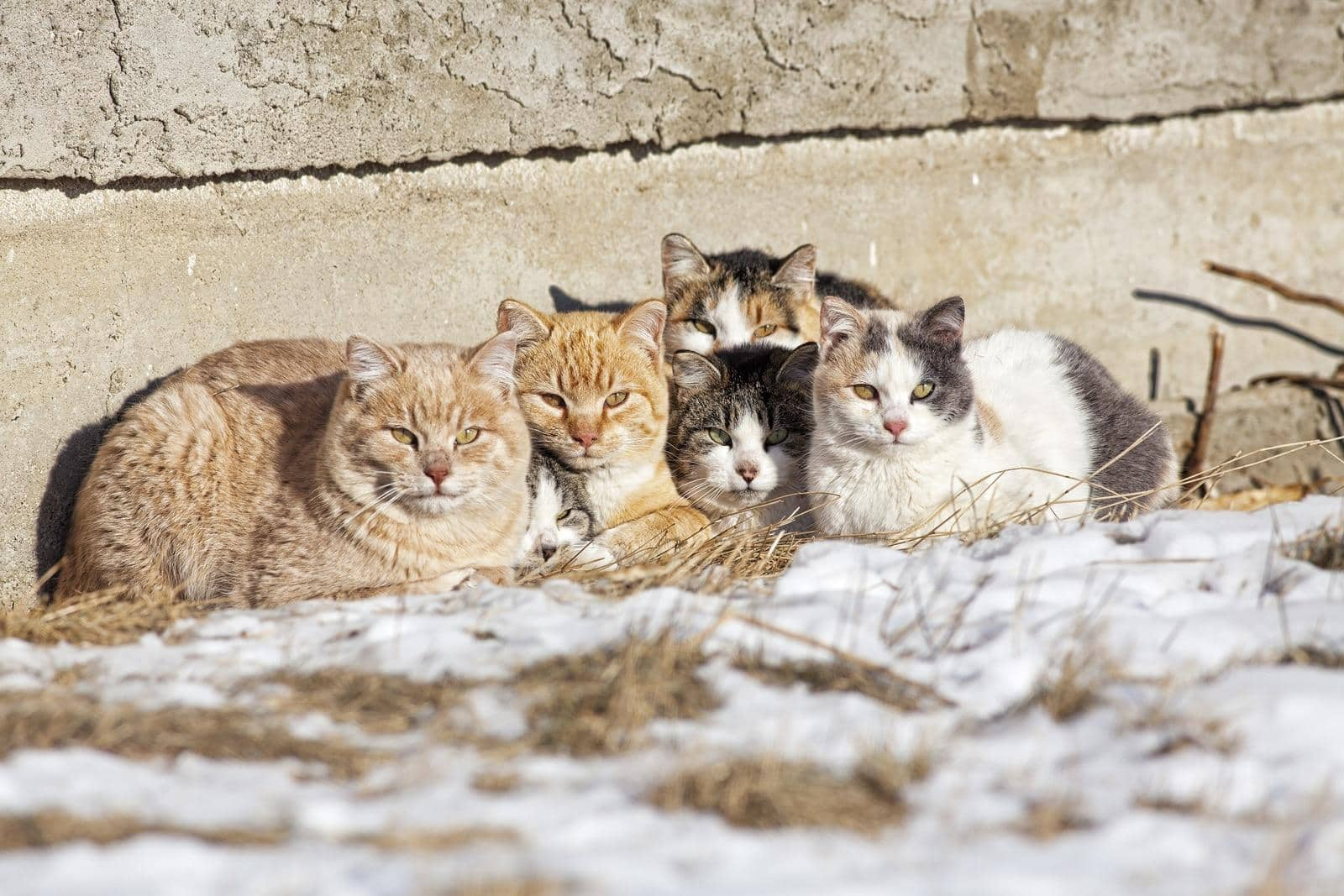
- Stray cats may be a little shy but will often make eye contact, vocalise, and let you approach them if given time. A feral cat, however, may be quiet and fearful, may not approach you or let you approach them, or may run away and hide.
- A stray cat will usually be alone, but a feral cat may be alone or with other cats.
- Stray cats can often be found around gardens and houses, and may even try to get in! Feral cats, on the other hand, tend to steer clear of populated places.
- Stray cats usually won’t have their left ear “tipped”, even if they’ve been neutered, but a feral cat sometimes will, depending on what is common practice in the country where you live.
- If the cat has recently appeared and seems disoriented or lost, it’s likely to be a stray. If it seems to appear regularly, it might be a feral cat that has set up a home nearby.
You might expect a feral cat to appear dirty or bedraggled, but this is actually more likely to indicate a stray cat. Some strays are used to being taken care of and may not maintain themselves well, but feral cats are often accustomed to keeping themselves clean and healthy.
If you think you might be dealing with a feral cat, it's best to keep your distance. You can call your local animal control if you suspect feral cats are living near you, as they are equipped to handle these wild cats.


Tasty Tips
Is it a Lost or Stray Cat?
After finding a lost cat and determining that they are not feral and are safe to approach, the next step is to figure out whether they are indeed simply lost or if they are a stray in need of a new home. If the cat is wearing a collar with ID, it's very likely that they are lost. In this case, simply call the number listed on the ID to let the owner know their cat has been found safe and sound. You can also call the veterinarian listed on the vaccination tag, who should be able to put you in contact with the cat's guardian.
Unfortunately, it's not always so simple. Many people don't put a collar or tags on their cats, so the fact that they don’t have them doesn't necessarily mean that they are homeless. You can take them to a vet or animal shelter to have them scanned for a microchip, which would have the guardian's contact information, but the lack of a chip also doesn't necessarily mean you're dealing with an abandoned cat.
With no easy way of identifying to whom the cat belongs, the next step is to check lost and found ads. It's also a good idea to ask around the neighbourhood to see if anyone is missing a cat, or if anyone has seen "lost cat" posters that describe the cat in question. Be sure to also check the lost and found on websites such as Gumtree, Facebook lost pet groups, local animal shelters, and lost pet databases such as Animal Search UK. People will often call their local shelters when a pet is lost, so there is a chance that the shelter will be able to help you reunite the cat with the owner.
If your search doesn’t turn up an owner, the final step is to place your own "found cat" ads. You can utilise your social networks in the hope that someone in your extended network knows where the cat belongs. If you call your animal shelter to let them know that you have found what you think to be a lost cat, they can contact you if the owner calls in. If you do not have the capacity to care for the cat while you search for the owner, make sure to call your local shelter and ask if you can bring the cat in. Never leave a cat at the door of a local shelter.
If You Have Pets
Dealing with finding a lost cat takes a considerable amount of time, and you may find yourself fostering your feline guest for several days or even weeks. If you already have pets in the home, keep your new guest quarantined either until you locate the owner or you can take the cat to the vet for a health check and vaccinations.
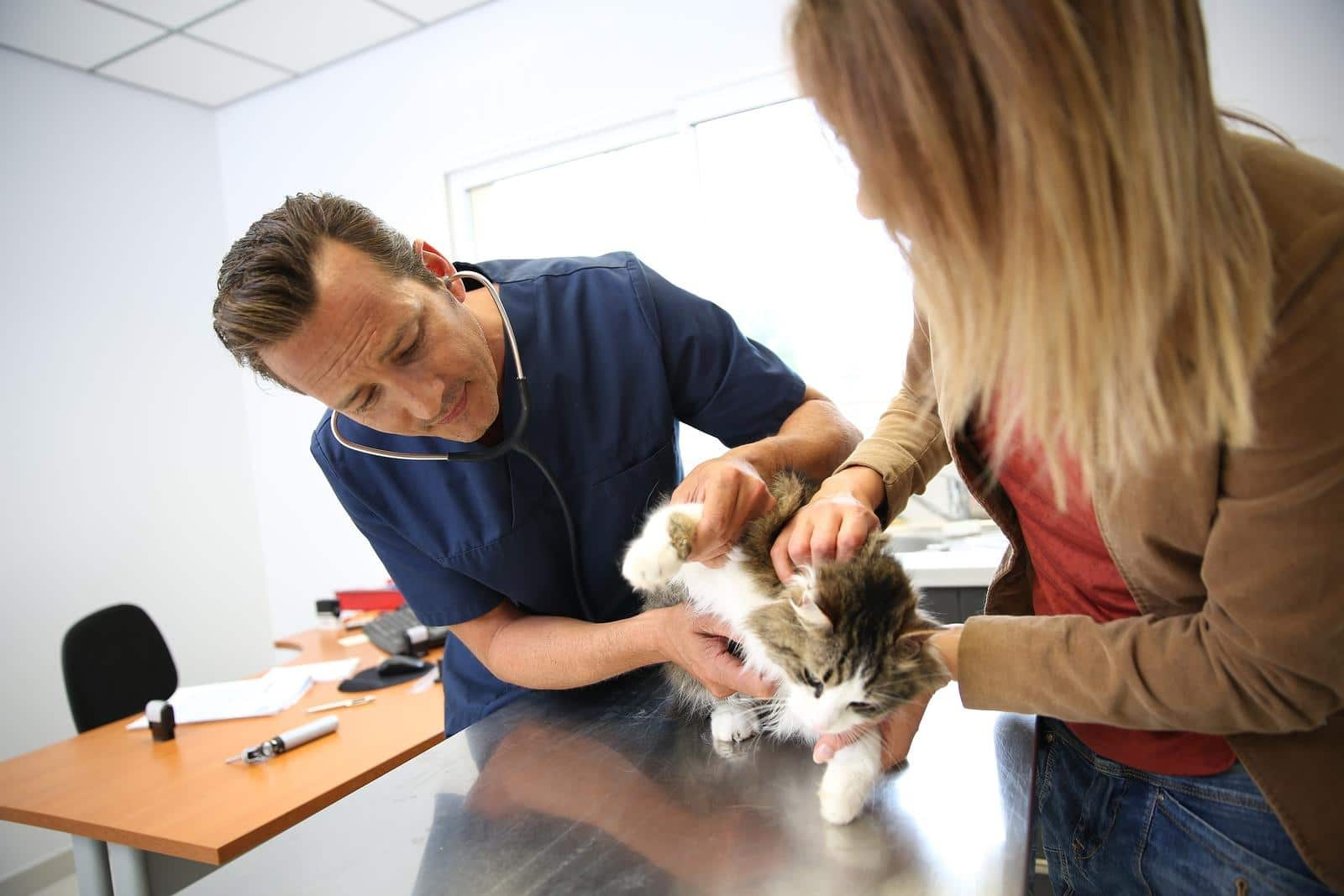
Once they get a clean bill of health, you can slowly introduce the new cat to your pets. On the other hand, if you have no plans to keep them, you may decide to keep the cat segregated for the remainder of their stay with you.
Helping a Stray Cat
If you've exhausted all your resources and failed to track down an owner, it's likely that the cat has been abandoned and is in need of a new home. In this case, you have a few options. You could, of course, adopt the cat yourself. If you do, your first step, if you haven't already done so, is to take them to the vet for a health check and to schedule vaccinations and spaying or neutering.
If you don't plan to keep the cat, you'll need to find them a new home. Call a reputable animal shelter or animal welfare organisation in your area (e.g. the RSPCA, Blue Cross, or Cats Protection in the UK) to see if they can help. You can also try the following steps to find your stray a new home:
- Advertise. Start by letting friends, family and co-workers know that you're looking for someone to adopt the cat. You can also try your social networks. If those avenues fail, place flyers in veterinary clinics and pet supply stores. You can also place classified ads in newspapers and online classified sites.
- Interview prospective guardians. A few questions to ask are whether they already have any pets and what kind, if those pets are vaccinated and spayed or neutered, whether there are children in the home, and if they live someplace that allows pets. If you haven't already taken care of vaccinations and spaying or neutering, ask if the prospective guardian is willing to commit to having these procedures done.
- Arrange a meeting. Allow the cat to meet the prospective guardian under your supervision to make sure they hit it off before agreeing to hand the cat over.
How to Help a Feral Cat
Feral cats are generally able to fend for themselves, so there is usually very little you need to do. However, it may be wise to contact a local animal welfare organisation about trap-neuter-return (TNR), a practice that helps to control the local feral cat population and reduce the risk of infectious disease transmission to domestic pets. Cats Protection explains that TNR involves trapping feral cats and kittens, having them spayed or neutered and vaccinated, and either returning adult cats to their environment or finding homes or shelters to take in kittens.
Finding a lost cat can be quite a commitment if you decide to be a good Samaritan, but it's often worth it for the peace of mind and overall good feeling that comes with helping an animal in need. Who knows? That stray cat on your doorstep just might end up becoming a cherished companion.


Jean Marie Bauhaus is a pet parent, pet blogger, and novelist from Tulsa, Oklahoma, where she usually writes under the supervision of a lapful of fur babies.
Related products

Hill's Science Plan Oral Care Adult Cat Food with Chicken contains clinically proven kibble technology to reduce plaque & tartar build up.
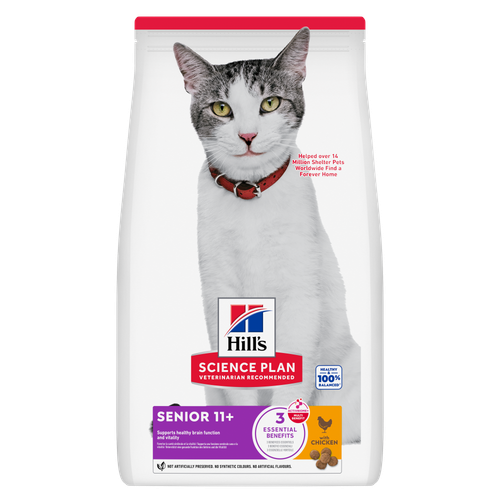
Hill's Science Plan Senior Cat Food with Chicken is a complete pet food, specially formulated with ActivBiome+ Multi-Benefit Technology.
This food supports healthy aging during the golden years. Contains a special ingredient blend to help keep older cats agile, more alert & interactive.

Hill's Science Plan Urinary Health Adult Cat Food with Chicken supports the health of the whole urinary system. Suitable for sterilised cats.

Hill's Science Plan Sterilised Cat Mature Adult Cat Food with Chicken is specially formulated with ActivBiome+ Multi-Benefit Technology. It is a precisely balanced nutrition tailored to meet the needs of mature adult sterilised cats, ages 7+, and to promote graceful ageing.
Related articles
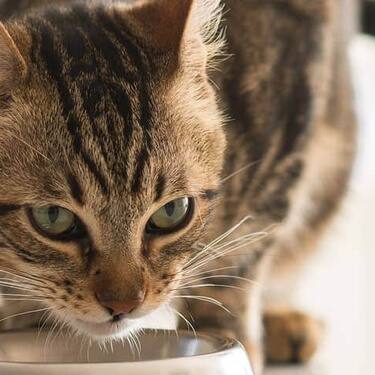
Discover what you can do to spot and support a sensitive cat stomach. See what routines and food you can implement to help your cat be happy and healthy.
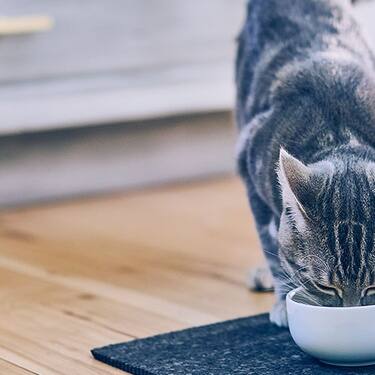
Good nutrition is about the right balance of nutrients. Learn more about health issues when feeding a cat food that has an improper nutritional balance from your friends at Hills Pet Nutrition.
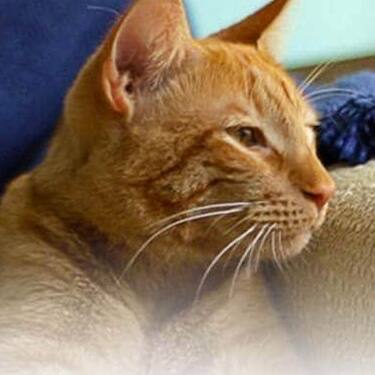
Find the right Hill
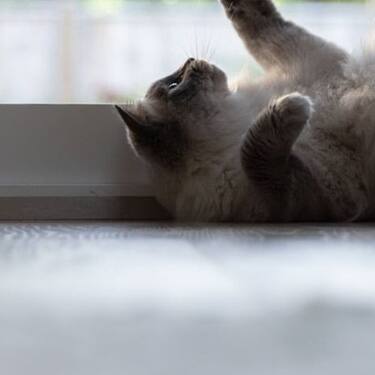
Feeding time can be a wonderful bonding opportunity for you and your cat. Find out how to make the most of it and create a healthy habit with HIll's Pet UK.

Put your cat on a diet without them knowing
Our low calorie formula helps you control your cat's weight. It's packed with high-quality protein for building lean muscles, and made with purposeful ingredients for a flavourful, nutritious meal. Clinically proven antioxidants, Vitamin C+E, help promote a healthy immune system.
Put your cat on a diet without them knowing
Our low calorie formula helps you control your cat's weight. It's packed with high-quality protein for building lean muscles, and made with purposeful ingredients for a flavourful, nutritious meal. Clinically proven antioxidants, Vitamin C+E, help promote a healthy immune system.

